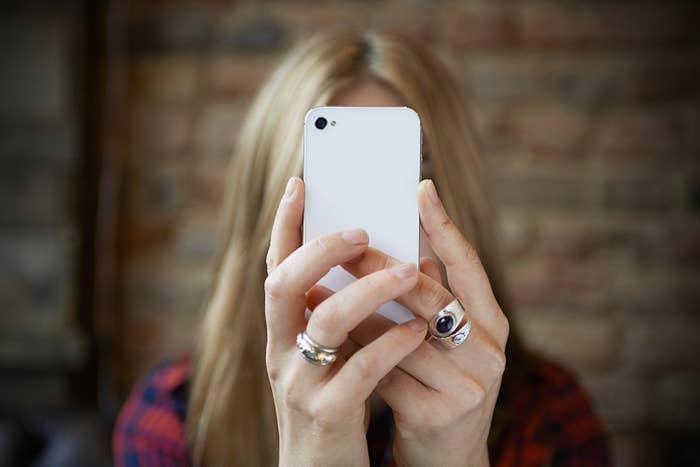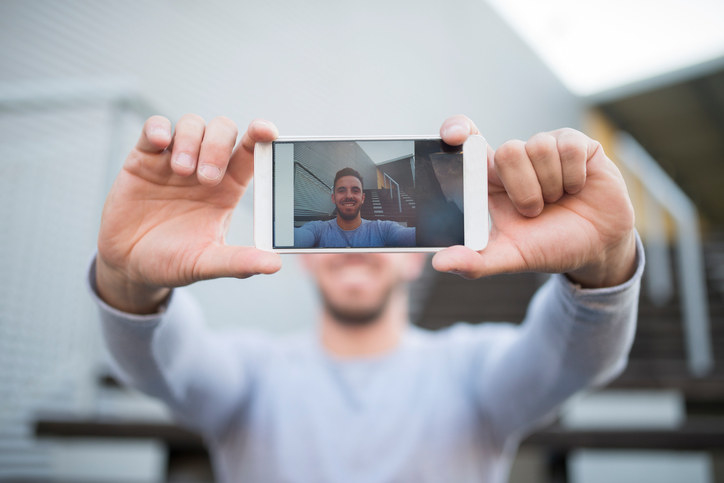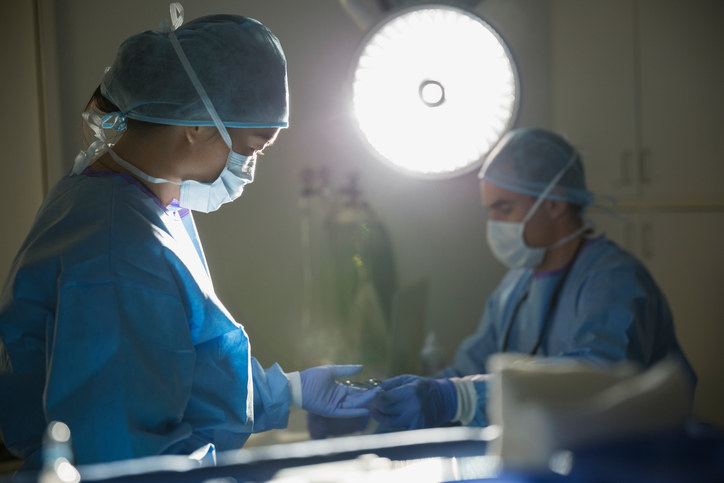
If you've ever used Snapchat filters, you know that they don’t just add puppy ears and a flower crown to your head. They can make your eyes appear larger, chin smaller, and nose narrower, and give you a face as smooth and blemish-free as a baby’s.
However, some doctors are worried that filters, and social media in general, are creating pressure to look perfect IRL and this might be harmful — particularly for teens and young adults. They say social media is fueling a rise in surgery requests by younger people, and face-altering apps and filters are creating unrealistic expectations for the results of these procedures.
"Society, with all the social media, is much more image-focused. ... You see it with all types of social media platforms," Dr. Neelam Vashi, director of the Boston University Cosmetic and Laser Center, told BuzzFeed News.
These photo-editing filters and apps offer a degree of image control that was previously only available to celebrities or models, and they have altered beauty standards, according to an opinion piece Vashi and her colleagues published this month in JAMA Facial Plastic Surgery.
They say selfies and filters could worsen symptoms for people who have been diagnosed with or are at risk for body dysmorphic disorder (BDD), or an excessive preoccupation with one or more perceived flaws in appearance. About 2.2% of women and 2.5% of men are thought to have this body image disorder, which can lead to intrusive, repetitive, and debilitating thoughts and behavior similar to obsessive-compulsive disorder — but focused on appearance.
"Snapchat dysmorphia" is a term that was first coined by British cosmetic surgeon Tijion Esho earlier this year to describe the rise in patients who wanted plastic surgery to mimic their filtered selfies.
But this isn't a recognized medical diagnosis, and so far, there is no real data showing a link between filters or image-altering apps and a rise in BDD diagnoses. And aren’t face filters just a fun way to play around and express yourself?
Well yes, but more people who are considering cosmetic or surgical procedures say that looking better in selfies is one of the reasons, according to a 2017 survey by the American Academy of Facial Plastic and Reconstructive Surgery (AAFPRS). It found that 55% of surgeons reported seeing patients who wanted to alter their appearance to improve selfies, up from 42% in 2016.
And it’s known that selfies, even without any filters, can sometimes be misleading. Earlier research has shown that the angle and distance at which we take selfies can make your nose appear larger, which can cause people to think their nose is bigger than it is in real life.
One 2015 study found that young girls who like to share selfies online and/or manipulate their image before doing so are more likely to have body-related and eating concerns than those who don’t. But it can be hard to tease out which came first — it’s possible that people who are already concerned about the way they look are more likely to use face- and body-changing technology.

Vashi said doctors don’t think Snapchat filters and Facetune are actually causing BDD. "Snapchat filters are not causing plastic surgery, and Snapchat dysmorphia is not BDD, but it could be a trigger and this [article] is just increasing awareness," Vashi said.
They do have some patients who seem to expect that they will be able to achieve a look that's as perfect as a filtered image.
"The filters create an instantaneous change or improvement in looks ... so patients want to go to their doctor and get instantaneous enhancement. ... To what extent is that feasible or appropriate?" Vashi said.
"Social media can encourage certain patients to have unrealistic and unhealthy obsessions," Dr. Patrick Byrne, director of Facial Plastic and Reconstructive Surgery at Johns Hopkins University School of Medicine and an AAFPRS board member, told BuzzFeed News.
"We’ve seen this dynamic for several years. ... People's obsession with their appearance on social media and the ease and frequency of selfies has led to a number of young people who seek plastic surgery," Byrne said. "Nobody has a perfect facial appearance — real life makes that obvious, but online it isn't obvious because people can control their appearance," he said.

But if you are thinking about getting plastic surgery, does it really matter if you bring a picture to the plastic surgeon of your own (edited) face instead of an image of Angelina Jolie or Denzel Washington?
According to Vashi, it does — face filters blur the line between reality and fantasy, creating unrealistic expectations of what can be done. "I can easily accept not looking like a celebrity, but it's much harder for me to accept that I can't look like an enhanced version of myself from a social media filter ... It makes it much more close to home," Vashi said.
"The takeaway for clinicians is to be aware of the influence of social media, especially with the younger generation," Vashi said. She also encourages more doctors to be aware of BDD and the early symptoms, which can be difficult to diagnose. For people with BDD, surgery generally doesn’t help relieve anxiety about physical appearance, she said. A better approach might be cognitive behavioral therapy or medication.
"Doing something to enhance the body can be very helpful for some people, it's just when these things become excessive. We can't live in this fantasy world, we need realistic expectations of what can be done," said Vashi.
CORRECTION
Tijion Esho's name was misspelled in an earlier version of this post.
